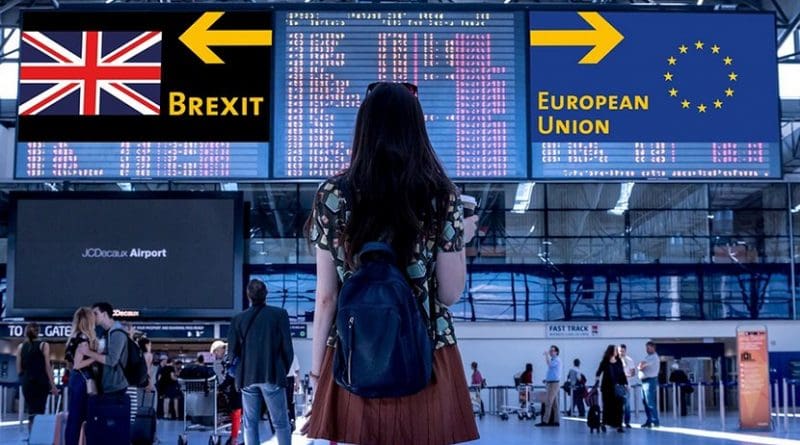Brexit: How Will This Never-Ending Drama End? – Analysis
By Observer Research Foundation
A no-deal Brexit would be economically disastrous for the UK and might even lead to shortage of medicines and food in the short- to medium-term. However that is not Boris Johnson’s concern at the moment.
By Harsh V. Pant
At times it’s difficult to analyse politics and policy, and it is precisely that moment in British political history when the usually transparent parliamentary procedures are being used and misused, bent and distorted by all sides.
British Prime Minister Boris Johnson’s strategy to take Britain out of the European Union by October 31 was in tatters earlier this week when British parliamentarians brutally rebuffed his demand for an early election and approved a rebel Bill to block a no-deal Brexit.
Johnson’s Conservative Party failed to win the two-thirds majority needed to call a snap election, mustering only 298 of the 434 votes required. This was a third defeat for Johnson in two days and the House of Commons not only rejected his demand for an election but also voted to prevent him from taking the UK out of the EU without a negotiated deal. Now the MPs will get another chance on September 9 to vote for an early election.
For any other Prime Minister this would have been a catastrophic failure and deemed sufficient grounds for resignation — but these are unusual times in British politics and the ‘mother of all parliaments’ is facing a crisis like none other. Johnson, of course, attacked the Opposition’s move, calling the Bill aimed at preventing a no-deal Brexit as “the surrender Bill” one which “would in essence overturn the biggest democratic vote in our history — the 2016 referendum.”
Earlier he had targeted Labour leader Jeremy Corbyn in Parliament. “I think [Corbyn] has become the first opposition leader in the history of our country to refuse the invitation to head to a general election,” said Johnson. “I can only speculate as to the reasons behind his hesitation, the obvious conclusion is I’m afraid that he does not think he will win.”
It is indeed ironical that after asking for elections for the last two years, Corbyn was leading the charge in rejecting Johnson’s demand for snap elections. His line now is that he would back a general election once the legislation to exclude the possibility of leaving without a deal has been passed. In this he has the support of rebel Tories — a ‘rebel alliance’ of 21 Conservative MPs — who were thrown out of the party after they supported the Opposition in the House of Commons. They had also opposed Johnson’s plan to suspend Parliament for five weeks ahead of the Brexit deadline on October 31.
Lacking a parliamentary majority and an Opposition united in its desire to prevent a no-deal Brexit, Johnson’s authority to run the UK is ephemeral and elections would come sooner than many had anticipated when he assumed office a few weeks earlier.
Most serious analyses suggest that a no-deal Brexit would be economically disastrous for the UK and might even lead to shortage of medicines and food in the short- to medium-term. However that is not Johnson’s concern at the moment. He wants to be an epoch-making British leader and all’s fair when stakes are this high.
All of this came about because of a longstanding division within the Conservative Party, which is now out in the open. The difference this time is that Johnson has made it clear that he stands with the Brexiteers of his party. This is fundamentally reshaping British politics and the Tories, with some of the best-known Tories now out of the party, including the grandson of Winston Churchill, Nicholas Soames and Jo Johnson, brother of the Prime Minister, who decided to quit as Tory MP.
Boris Johnson always wanted this escalation as this allows him to set his anti-EU agenda categorically. Governance was never really his priority. The EU seems to have resigned itself to pessimism. As one EU diplomat is reported to have said, “We are not optimistic at all that this is going to end well, and not sure the UK government has a plan, and that the UK government when it returns on the 15th [October] that it will be in a state where it wants to do a deal.”
The stakes clearly could not have been higher for all sides, but no one quite knows how this seemingly never-ending drama is going to end.
This commentary originally appeared in Money Control

